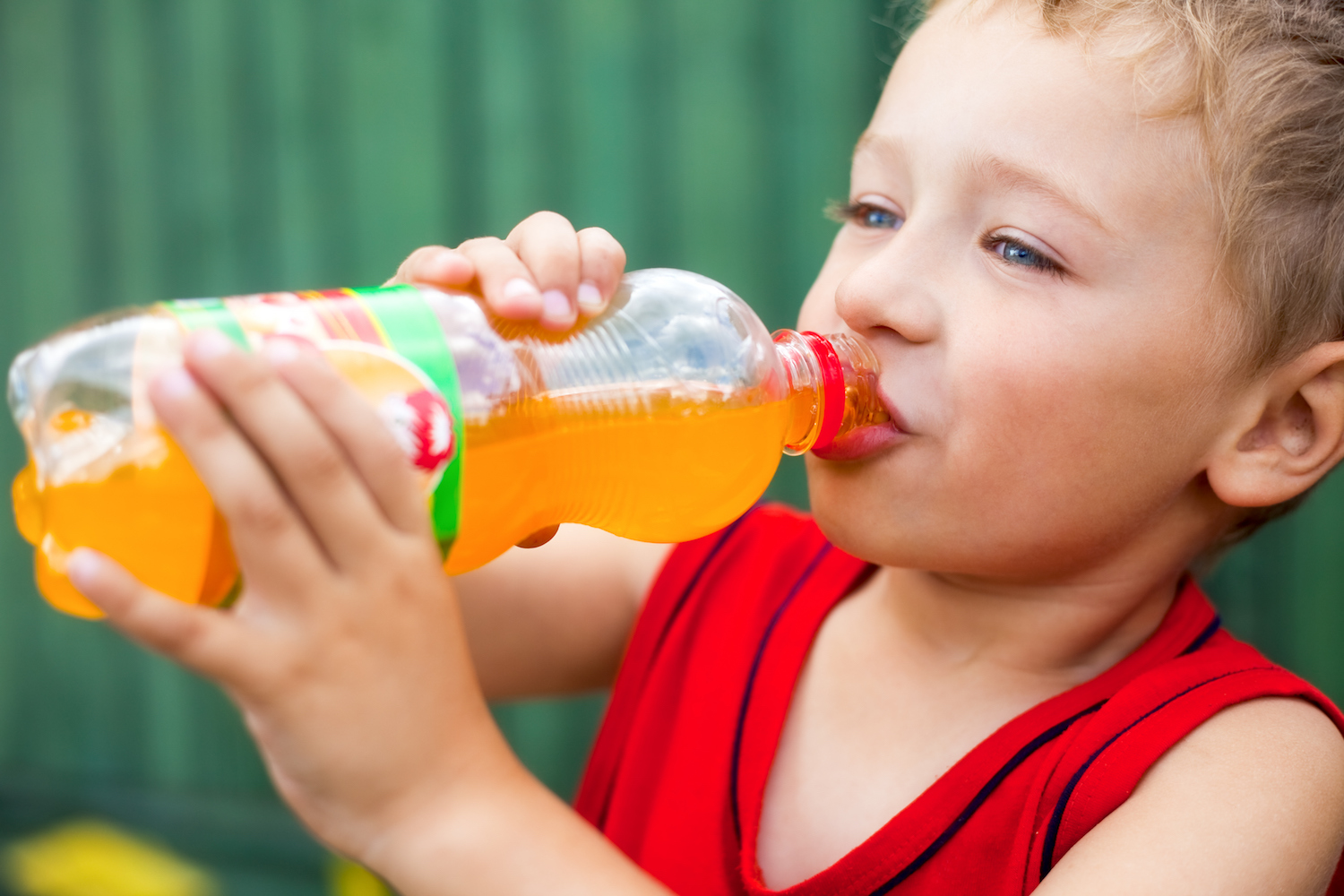Topics

Earlier this year, a teenager in South Carolina died after consuming a café latte, Mountain Dew and an energy drink within the span of a few hours. The consumption of such a large amount of caffeine in such a short time was thought to have induced a deadly abnormal heart rhythm. Tragic events like these are rare, but they highlight a changing trend in caffeine consumption among children. According to a 2014 study in Pediatrics, 73 percent of children consume caffeine on a daily basis. This percentage remained about the same from 2000 to 2010, but what did change were the sources of caffeine. In 2000, soda and tea made up the majority of caffeine consumed by children. By 2010, coffee and energy drinks were making up a much larger proportion of these sources. So, just how much caffeine is safe for your child?
While the Food and Drug Administration gives caffeine intake guidelines for adults (no more than 400 mg, or about four to five cups of coffee, per day), there are no clear guidelines for children. We do know children are more sensitive to caffeine’s effects, but just how sensitive they are will depend on the child’s age, weight and even gender. Caffeine can lead to high blood pressure, increased heart rate, dehydration, hyperactivity, poor sleep, irritability and anxiety. Consider that these drinks often contain large quantities of sugar, and some of these effects may be even more extreme.
My advice for parents is simply to avoid caffeine completely for children 12 years and younger. Stick with water and milk, as these are guaranteed to keep your child safe and hydrated. They also do not contain the large quantity of sugar that is found in teas, sodas and coffees. Children need to be able to sleep well at night and focus in school, and even small amounts of caffeine may disrupt their ability to do this.
Once children reach the teen years, parents should talk to them about caffeine intake. As with most things, moderation is key. Some teens with behavioral and heart problems should avoid caffeine completely, so if in doubt, discuss with your pediatrician. If you do allow your teenager to drink caffeine, limit him or her to one caffeinated beverage per day, and never allow consumption of energy drinks. The American Academy of Pediatrics (AAP) issued a clear statement that all children should avoid energy drinks due to the potentially dangerous levels of caffeine in them. These drinks have much higher amounts of caffeine than a soda or cup of coffee, and because they are considered nutritional supplements, the amount of caffeine is not as closely regulated by the FDA.
Caffeine is prevalent in our society, and many people, including myself, enjoy a cup of coffee each morning. Its stimulant effects help many adults get going in the morning and may help them to feel more productive. However, it is important to remember that despite its prevalence, caffeine is still a drug. While adults have the ability to make conscious decisions about their caffeine intake, children will not be aware that a sweet soda or coffee drink is filled with caffeine. It is our duty as parents and pediatricians to monitor and limit caffeine intake in our children to keep them safe, healthy and happy.



